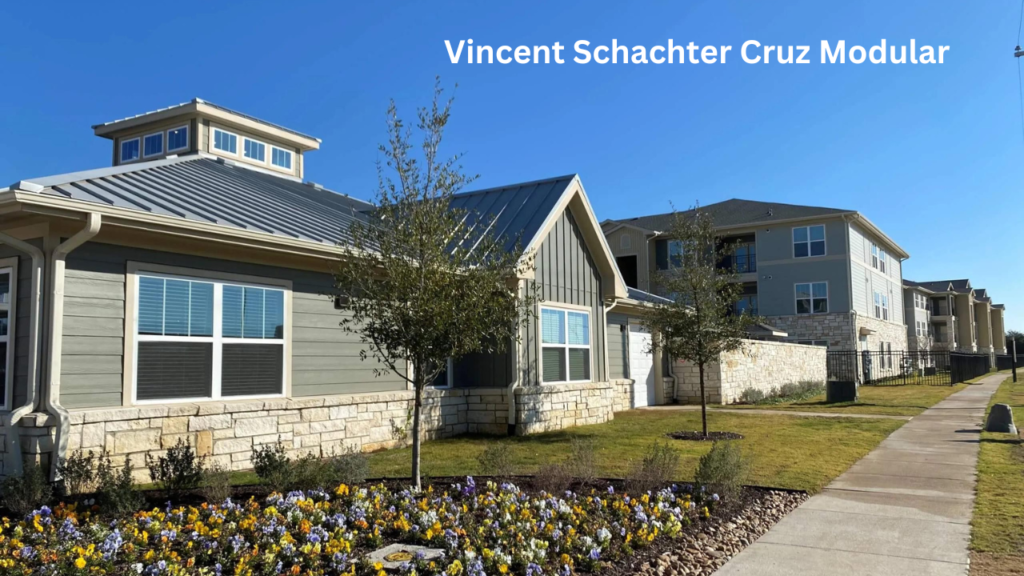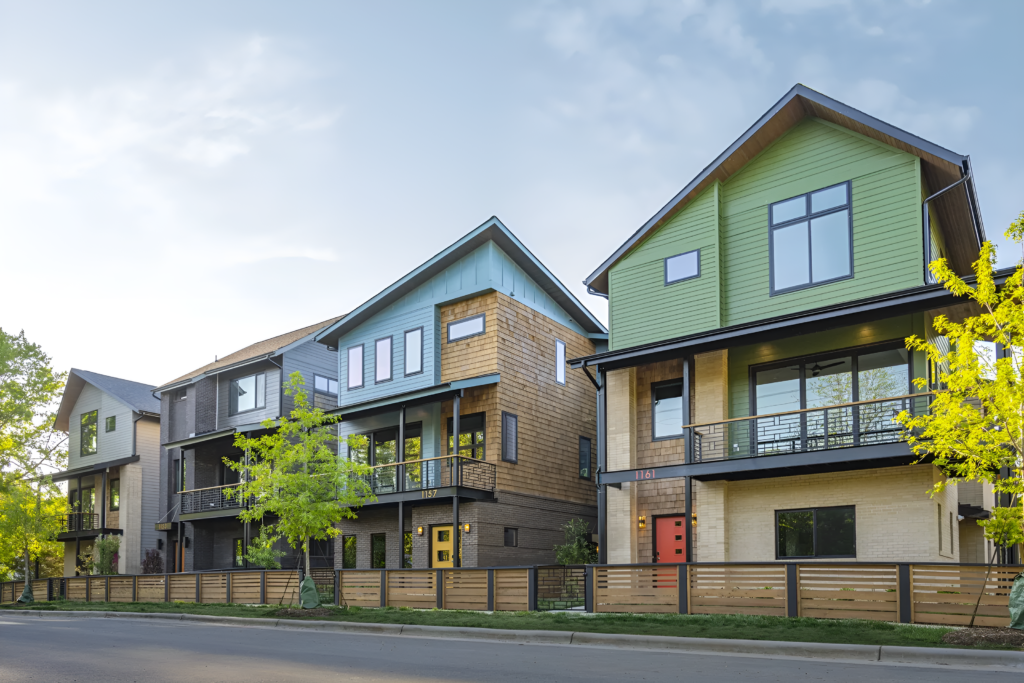Vincent Schachter Cruz Modular A Revolutionary Impact on Urban Housing

In today’s fast-paced world, urbanization is expanding rapidly, creating an ever-increasing demand for affordable, sustainable, and efficient housing solutions. Architects, developers, and urban planners are being pushed to think outside the box, and one of the most innovative solutions is modular construction. Cruz Modular, a leader in this field, is pioneering new ways of building urban housing. Leading this transformation is Vincent Schachter Cruz Modular, a visionary committed to reshaping the housing landscape with sustainability, scalability, and affordability at its core.
In this blog post, we’ll dive deep into Vincent Schachter’s contribution to Cruz Modular, examine the modular construction process, and discuss its profound impact on urban housing.
Who is Vincent Schachter Cruz Modular?
Vincent Schachter is an influential figure in the world of sustainable architecture, urban planning, and clean energy. With a background in both engineering and architecture, Schachter has a unique perspective that drives his work in sustainable urban housing. His career spans several industries, but his main focus has always been merging innovative technology with sustainable solutions for urban challenges.
Vincent Schachter Cruz Modular Leadership
Under Vincent Schachter’s leadership, Cruz Modular has made remarkable strides in modular housing solutions, which address many of the limitations of traditional construction methods. Schachter’s vision involves creating living spaces that are not just functional but transformative, blending innovation with practical, eco-friendly designs that can be deployed at scale to meet the housing needs of cities around the world.
Schachter’s work with Cruz Modular is marked by three guiding principles:
- Sustainability: Incorporating eco-friendly materials and energy-efficient designs to minimize the environmental impact of urban housing developments.
- Affordability: Ensuring high-quality, sustainable housing solutions are available to a broad segment of the population, addressing the economic challenges many face in cities today.
- Scalability: Leveraging modular construction technology to allow for rapid building, ensuring cities can meet housing demands quickly and efficiently.
These principles have established Schachter as a thought leader in the field, driving Cruz Modular’s vision of revolutionizing urban housing worldwide.
Vincent Schachter Cruz Modular Construction
Cruz Modular is a company specializing in modular construction, a method that involves manufacturing building components off-site and assembling them on-site. This approach drastically reduces construction time, waste, and cost while maintaining strict quality control.
Under Vincent Schachter’s leadership, Cruz Modular has focused on addressing the most pressing challenges in urban housing with advanced modular technology. The company builds a variety of structures, from compact apartment complexes to larger residential buildings, each tailored to the needs of urban environments.
Key Features of Cruz Modular’s Approach
Cruz Modular has established itself as a leader in modular housing construction through several innovative approaches:
Sustainability as a Core Value
As a responsible company on the building industry, at Cruz Modular we regulate the use of environmentally-friendly materials, energy saving systems and designs to minimize the impact of housing complexes in the environmental footprint. All buildings include the use of sustainable resources from recycled steel and timbers to energy saving features such as solar panels and rainwater harvesting.
Accelerated Construction Timeline
Unlike conventional building construction that may take many years especially where there are many people, the calendar time is greatly reduced to year or even months. Using modular construction, Cruz Modular is in a position to provide fully functional construction within the shortest time, time which is often half that of the normal construction period.
Customizable and Adaptable Designs
Vincent Schachter Cruz Modular are highly customizable, allowing for flexibility in design based on the unique needs of a city or community. Whether constructing a high-rise apartment building or a set of townhomes, Cruz Modular tailors each project to meet local architectural requirements and preferences.
Cost Efficiency and Affordability
By building modules in a factory environment, Cruz Modular reduces material and labor costs, passing on these savings to customers. This efficiency, combined with the rapid construction time, makes modular housing more affordable for urban populations.
Eco-Friendly Construction Processes
Modular construction generates less waste than traditional methods, as modules are created to exact specifications in a controlled factory setting. This process reduces material waste and makes recycling more efficient, significantly reducing the environmental impact of urban development.

Why Modular Construction is Revolutionizing Urban Housing
The rise of modular construction has become a game-changer in addressing urban housing challenges globally. Cities such as New York, London, Tokyo, and Vancouver are increasingly adopting modular construction to meet the growing demand for housing. The need for affordable, sustainable, and quick-to-build housing is becoming more urgent, and modular construction offers the perfect solution.
Benefits of Vincent Schachter Cruz Modular
Speed and Efficiency
One of the most important advantages of modular development is its speed. While traditional construction methods often face delays due to weather, labor shortages, and logistical issues, modular construction allows for parallel workstreams. While modules are constructed in the factory, the site is prepared simultaneously, drastically reducing the overall build time.
Cost Savings
Building in a factory setting allows Cruz Modular to purchase materials in bulk, reducing material costs. Additionally, the shortened construction timeline lowers labor costs, allowing modular buildings to be delivered at a lower price than traditional methods.
Environmental Benefits
Traditional construction contributes to significant environmental waste and carbon emissions. Modular construction, in contrast, produces far less waste and uses more energy-efficient building practices. Cruz Modular’s commitment to sustainability further reduces the environmental impact by incorporating renewable materials and energy-efficient systems into its designs.
The Global Housing Crisis and Cruz Modular’s Impact
Urban housing shortages are one of the most pressing global issues today. In many cities, the demand for housing far exceeds the available supply, leading to skyrocketing prices and a lack of affordable options for residents. Cruz Modular, under Vincent Schachter Cruz Modular leadership, is addressing this crisis head-on with its innovative approach to modular construction.
Addressing the Affordability Gap
The affordability of housing is a major concern for many urban residents, especially in cities where housing prices have dramatically increased over recent years. Traditional construction methods, which are costly and time-consuming, often exacerbate the problem by making it difficult to produce enough affordable housing quickly.
Cruz Modular’s approach, which combines cost-efficiency with rapid construction, is offering a solution. By reducing building costs and timelines, Cruz Modular can provide housing that meets both the affordability and quality demands of urban populations.
Sustainability and Urban Development Vincent Schachter Cruz Modular
Cities are major contributors to global carbon emissions, and the construction industry is one of the largest sources of environmental degradation. Modular construction, however, offers a more sustainable solution. Cruz Modular’s eco-friendly materials and energy-efficient designs ensure that its buildings have a smaller environmental footprint, helping cities become more sustainable.
Vincent Schachter’s dedication to sustainable urban development is one of the driving forces behind Cruz Modular’s success. By prioritizing sustainability in all aspects of its work, Cruz Modular is setting a new standard for eco-friendly urban housing.
Modular Construction vs. Traditional Construction: A Comparative Analysis
To fully appreciate the benefits of Vincent Schachter Cruz Modular approach to urban housing, it’s important to compare modular construction with traditional construction methods.
Speed and Flexibility
- Modular Construction: Cruz Modular’s modular housing can be built in half the time of traditional construction, thanks to its off-site manufacturing and parallel construction processes.
- Traditional Construction: Traditional methods are often subject to weather delays and logistical challenges, significantly lengthening the build time.
Cost Efficiency
- Modular Construction: By controlling the environment in which the modules are built, Cruz Modular minimizes waste and reduces labor costs, making modular housing more affordable.
- Traditional Construction: Traditional construction involves more on-site labor and higher material waste, driving up costs.
Sustainability
- Modular Construction: Cruz Modular’s focus on sustainability ensures that every building is energy-efficient and eco-friendly. Modular construction produces less waste, uses renewable materials, and integrates green energy systems.
- Traditional Construction: The environmental impact of traditional construction is typically much higher due to inefficiencies, material waste, and outdated building practices.
What’s Next for Vincent Schachter Cruz Modular?
As urbanization continues to accelerate, the need for innovative housing solutions will only grow. Vincent Schachter and Cruz Modular are well-positioned to lead the future of urban housing development. Their emphasis on sustainability, affordability, and scalability aligns perfectly with the evolving needs of cities worldwide.
Expanding to Global Markets
Cruz Modular’s adaptable approach makes it highly scalable, and the company is expected to expand into new markets, particularly in regions experiencing rapid urban growth. The ability to quickly and affordably build sustainable housing makes Cruz Modular a valuable partner for cities seeking to address their housing shortages.
Continued Innovation in Sustainable Housing
As technology and sustainable practices continue to evolve, Cruz Modular will likely incorporate new materials, methods, and designs into its projects. Schachter’s commitment to innovation ensures that the company will remain at the forefront of modular construction, offering housing solutions that are both cutting-edge and environmentally responsible.
Conclusion
Vincent Schachter Cruz Modular is revolutionizing the way cities approach housing development. By offering affordable, sustainable, and rapidly built housing solutions, Cruz Modular is addressing the urgent need for new urban housing models. As the world’s population continues to grow and urbanize, the impact of Cruz Modular and its modular construction methods will only increase, shaping the future of cities around the globe.







